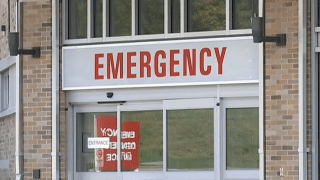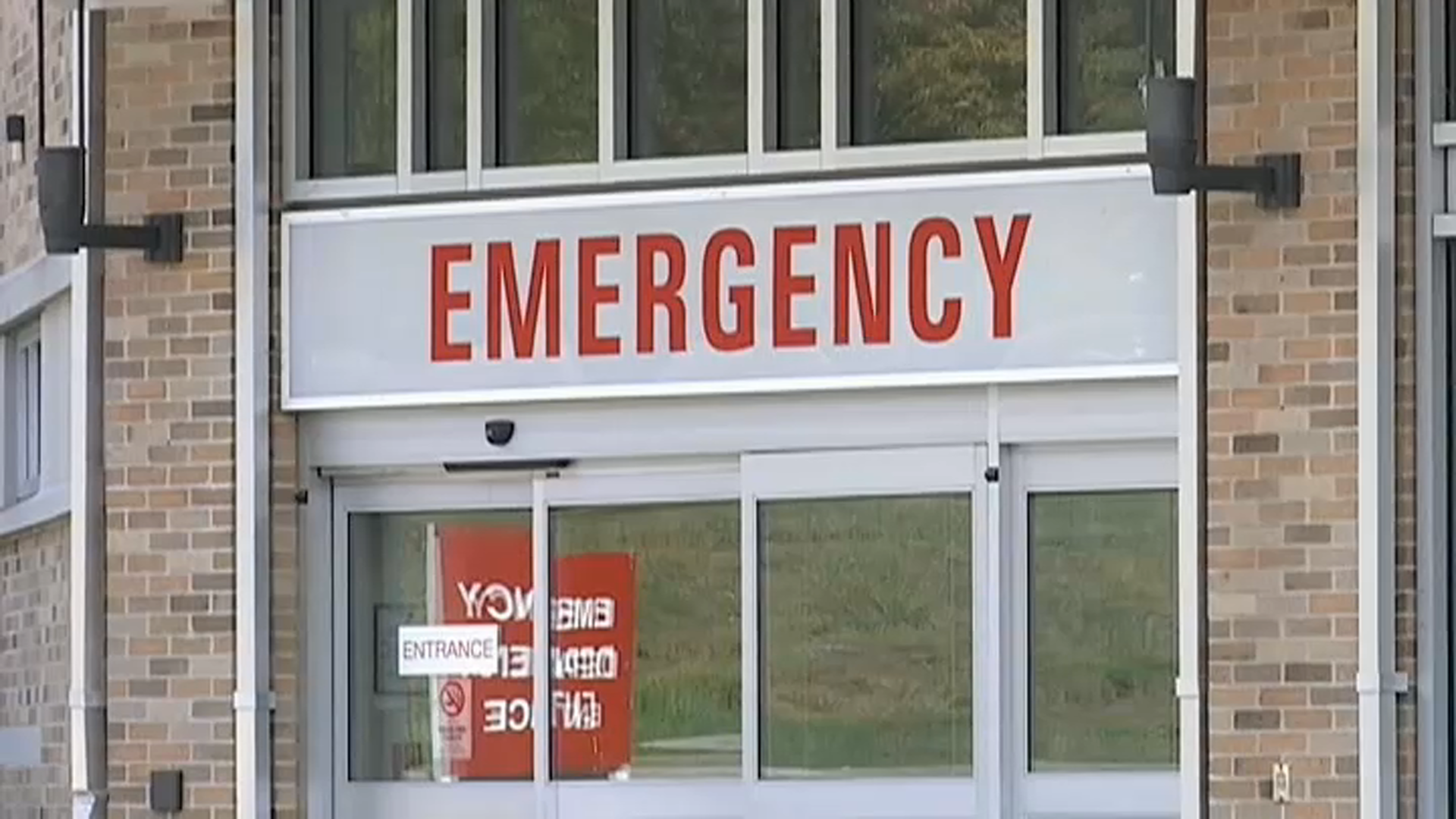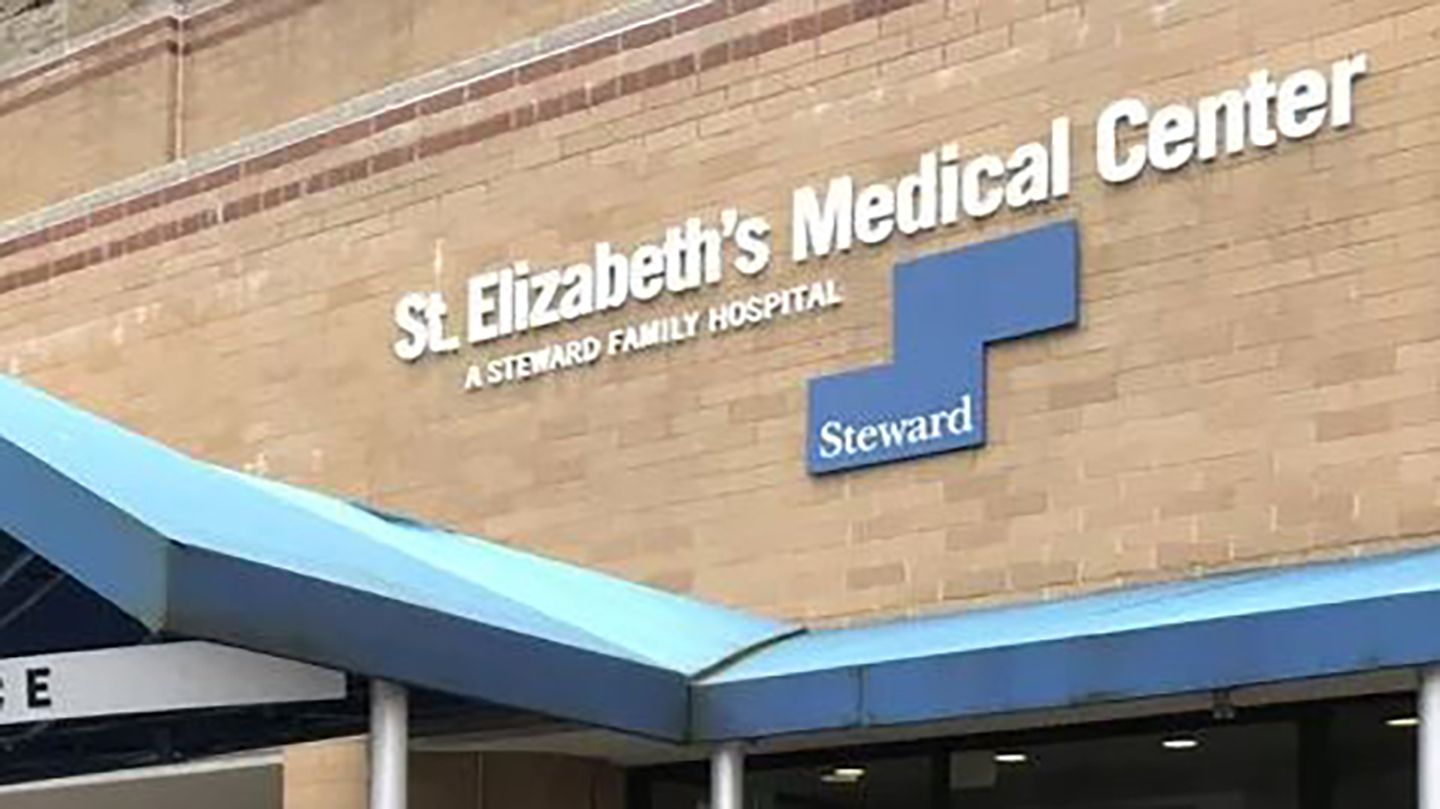
A judge ruled Tuesday that the bankrupt Steward Health Care system can meet Wednesday's payroll for its roughly 9,750 employees in Massachusetts and more than 20,000 others around the country, an early ruling in a court proceeding in which Massachusetts is among hundreds of interested parties.
The operator of the third-largest hospital system in Massachusetts, Steward filed for Chapter 11 bankruptcy in Texas on Monday, seeking legal protection to restructure debt of between $1 billion and $10 billion while leaving its hospitals open. The company operates eight Bay State hospitals and has been sinking under a pile of debt to vendors and its de facto landlord. It has also been feeling the pressure from Massachusetts officials who are focused on making sure Bay Staters have appropriate access to care and that Steward's floundering does not worsen the capacity crunch at Massachusetts hospitals.
WATCH ANYTIME FOR FREE
Stream NBC10 Boston news for free, 24/7, wherever you are. |
Judge Christopher Lopez of the U.S. Bankruptcy Court for the Southern District of Texas held a hearing on initial motions related to Steward's bankruptcy Tuesday, primarily requests from Steward to pay certain bills or meet specific obligations while its more than 100,000 creditors scramble to try to ensure they will be paid. Among the motions was one to authorize (but not require) Steward to pay wages, salaries, employee benefits, expenses, and other compensation while the bankruptcy case moves ahead. Lopez said he was comfortable with the request and approved it after the hearing in the absence of objections from creditors.
Get updates on what's happening in Boston to your inbox. Sign up for our News Headlines newsletter.
"This case feels different. It's real patients who are showing up at the hospital like right now and I want them to feel comfortable that the physician that they are going to see, that there are nothing in the back of their mind other than their treatment and the care that they're going to receive. I have no doubt the physicians would do their best and would honor their duties," the judge said. "But I'm going to make sure that any concerns are taken off the table, especially when the folks with the money on the line have not objected to this relief."
An attorney for Steward told the court that the company pays approximately $150 million a month in employee wages, mostly in arrears. And as of Monday, Steward owed approximately $68 million for accrued, but unpaid, wages that had already been earned. As of February, there were 9,753 employees on Steward's payroll in Massachusetts and 6,405 licensed independent practitioners working within Steward hospitals, the state said.
Massachusetts state government was represented at Tuesday's hearing by Andrew Troop, a lawyer who leads the Insolvency & Restructuring Practice Group in the New York office of Pillsbury Winthrop Shaw Pittman. The Amherst College graduate previously represented Massachusetts and other states in the Chapter 11 bankruptcy of Purdue Pharma and has served on the board for Greater Boston Legal Services for more than a decade.
"Health care cases, as everyone has acknowledged, are not your typical cases. This is not an issue for someone in a manufacturing job," Troop said in support for the wages motion Tuesday. "On this one, your honor, making sure that the people who provide critical care services leave today confident that their base pay is going to be paid in tomorrow's payroll is both the right thing to do [and] well within your authority and power to execute on."
He added, "Vendors are waiting for the outcome of this hearing. Patients are waiting for the outcome of this hearing."
Steward operates eight hospitals in Massachusetts: St. Elizabeth's in Brighton, Carney Hospital in Dorchester, Good Samaritan Medical Center in Brockton, Holy Family Hospital in Methuen and Haverhill Hospital in Haverhill, Morton Hospital in Taunton, Nashoba Valley Medical Center in Ayer, Norwood Hospital (which is closed as it undergoes restoration work) and St. Anne's in Fall River.
More on Steward Health Care
Gov. Maura Healey and other state leaders have said they want to see Steward exit the Massachusetts health care world but Healey's Health and Human Services Secretary Kate Walsh has also noted that due to the company's debt and lease arrangements, "People can't figure out what they're buying."
One state filing in bankruptcy court said the state's objective is to get "results where Steward no longer operates hospitals in Massachusetts."
Steward has been working for months to find other operators interested in buying its hospitals. Ray Schrock, Steward’s lawyer from the firm Weil, Gotshal & Manges, told the court Tuesday that Steward faces a June 25 deadline to auction its hospitals in Massachusetts and other states except for Florida under the terms of a $75 million loan the company got from its landlord. But he also said that timeline isn't likely to be satisfied.
"We'll see how the timing goes. We'll see whether or not this is revisited. We're going to keep our word and do everything we can to meet it. But I'm here to tell you now, you can't close these hospital sales on the timeline of likely into June. It's not feasible, OK? It's not something that I can sit here and say that you can do it without violating state law. So we'll have to work with parties."
Schrock said Steward's "sales strategy is the foundation of these cases, it's going to be critical to maximizing recoveries" for creditors, but that the company does not want to "fire sale the assets."
"I know that [landlord Medical Properties Trust] has a strong desire to get … new tenants in here. But we want to proceed deliberately and we don't want to pursue a value-minimizing strategy," he said.
Because MPT owns the land that Steward's for-sale hospitals sit on, Schrock said he expects there will be "tension between MPT and some of the stakeholders in these cases that we're just going to have to work through."
"MPT, listen, they're here to maximize the real estate value and maximize the value of their claims. That's their job. The other stakeholders are looking at the sale processes and say, 'Listen, there's an operational value that's really the crux of these hospitals and these operations.' And how you sort between the operational value of a hospital and the real estate value of a hospital, I'll just say people could logically debate," Schrock said. He added, "How you get that value between the [operating company] and the lease is something that's going to have to be resolved."
Since Steward's financial troubles came to the surface earlier this year, the Department of Public Health has conducted regular monitoring visits to all Steward hospitals, wanting to ensure the facilities continued to comply with state laws and regulations.
"Based on the findings of the Department’s monitoring, it has become clear that Steward’s fiscal challenges have already presented patient safety and health challenges, which to date have been isolated, and DPH has been able to detect and remediate quickly. These challenges include maintaining the physical premises (e.g., fire safety equipment) as well as critical supplies and equipment," DPH Commissioner Robbie Goldstein wrote in a filing. "For the most part, the cause of any issues the monitors have identified is lack of funding made available to the hospitals from the Steward corporate level."
Massachusetts' filings in bankruptcy court shed a more detailed light on the financial problems at Steward.
Since 2022, there have been at least 21 lawsuits filed by vendors and staff against Steward and/or its Massachusetts hospitals for alleged nonpayment of more than $60 million, the state said. In November, Goldstein said, DPH learned that Steward's hospitals here owed a collective $540,908.16 to UMass Chan Medical School’s New England Newborn Screening Program for newborn screening tests performed from January 2022 to September 2023. As of April 30, Steward had accrued additional debt related to this program for a total balance of $766,691.99.
On Jan. 9, DPH found out that Good Samaritan Medical Center in Brockton owes $1.2 million to Brockton Hospital for nurses that Brockton Hospital provided on loan. Brockton Hospital also told the state that it was providing products, like sterile surgical drapes, to other Steward hospitals in Massachusetts.
And late last month, one "critical vendor" got in touch with DPH and Health and Human Services Secretary Walsh about an outstanding debt owed by Steward and threatened to cease servicing its equipment unless Steward made a cash payment by May 1. (The state's filing does not indicate whether that payment was made).
"Steward enters bankruptcy with its hospitals in Massachusetts compromised by fiscal and operational mismanagement, the nature and scale of which it actively concealed from both the government and the public. Steward created an untenable situation by over-leveraging its hospitals and imposing exorbitant and unsustainable rental obligations on each hospital. It is now clear that not long after creating this situation, hospital operations could not bear the excessive rent costs, Steward could not service the debt it had incurred, and Steward started to shirk its obligations to pay vendors and suppliers. All the while, Steward continued to enrich its investors and management," the state wrote in a brief. "Instead of advancing a global solution to stabilize its financial situation, Steward pivoted to a plan to sell its physician network to pay off its landlords and senior lenders, to whom Steward had leveraged all available accounts receivable and, in effect, given nearly exclusive control over the survival of Steward’s Massachusetts Hospitals."




